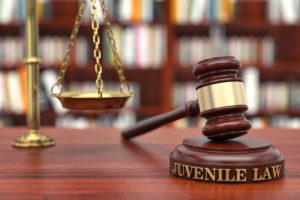
Extended juvenile jurisdiction (EJJ) is a program that has been on the books in Minnesota since 1995. EJJ allows a juvenile court to issue a dual sentence to a minor, meaning that they will be given an adult sentence and a juvenile sanction for the same crime. These types of sentences are typically reserved for minors who commit serious crimes, and we’re going to use today’s blog to dive into the specifics of an EJJ sentence.
Extended Juvenile Jurisdiction Sentencing In Minnesota
Under Minnesota law, a child over the age of 14 can be tried as an adult under specific circumstances for certain felony-level offenses. According to Minnesota Statute 206B.130, an EJJ may be pursued if:
- The child was between 14 and 17 years old at the time of the alleged offense, a specific hearing was held, and the court designated an EJJ prosecution; or
- The child was between 16 and 17 years old at the time of the alleged offense, the individual is alleged to have committed an offense for which the Sentencing Guidelines and applicable statutes presume a commitment to prison or to have committed any felony in which the individual allegedly used a firearm, and the prosecutor designated in the delinquency petition that the proceeding is an EJJ prosecution; or
- The child was between 14 and 17 years old at the time of the alleged offense, the prosecutor requested the proceeding be designated an EJJ, a hearing was held on the issue of designation and the court established the proceeding as an EJJ prosecution.
Essentially, if the child is over the age of 14 but not yet considered an adult (anyone younger than 14 cannot be tried as an adult), and the crime is severe enough to warrant an adult sentence, an EJJ may be pursued. Violent assault and homicide cases may trigger the pursuit of an EJJ, but more common juvenile crimes, like disorderly conduct, vandalism or shoplifting will simply be handled by juvenile court.
Once the prosecution has made a motion for an EJJ, a hearing will be held before a judge to determine if the case will be designated an EJJ or a juvenile matter. The teen will undergo a psychological and probation study before the hearing, and then the prosecutor will attempt to make a case at the hearing that the threshold for an EJJ has been met. Your child’s attorney will also be able to speak at this hearing, and they can cross examine witnesses or present their own witnesses in order to make an argument that the case should be handled by a juvenile court.
If an EJJ is designated, the case will go to court and play out like normal. If the individual is convicted, the court will hand down a juvenile and adult sentence. The juvenile sentence is to be followed until the individual turns 21. The adult sentence will only be imposed if the individual fails to follow the protocols in their juvenile sentence, which may involve things like juvenile detention, community service and other probationary conditions.
Your child needs expert legal representation no matter what charges they are facing, but this is especially true if an EJJ has been designated. Avery and his team have assisted on a number of these cases, and he’d be happy to help your child navigate these complex waters. For more information, or for help with a different criminal issue, reach out to Avery and the team at Appelman Law Firm today at (952) 224-2277.





